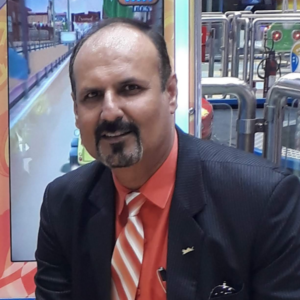Neurological Physiotherapy
Neuro Physiotherapy, also known as neurological physiotherapy, is a specialized branch of physiotherapy dealing with the assessment and treatment of patients with neurological disorders.
These disorders are directly concerned with the central nervous system (CNS) which include the brain, spinal cord and nerves in the body.
These conditions have a huge impact on day to day activities and body functions.
People with neurological disorders may feel-
Due to damage to the nervous system, the communication between brain and nerves gets disturbed and results in a variety of challenges. These challenges may include loss of movement and sensation, Balance and coordination, muscle weakness, spasm, tremor, loss of function, and decreased sensation.
Main neurological conditions are stroke, paralysis, cerebral palsy, brain or spinal cord injuries and Parkinson’s disease.
What to expect from a neuro physiotherapist
A neuro physiotherapist helps to recover motor function and movement of joints, muscles and tendons in individuals who are affected by disability, illness or injury. They also help in keeping the muscles active and the joints flexible, prevents wasting and deterioration of function, as well as promoting rehabilitation.
A neuro physiotherapist should work for-
How a neuro physiotherapy works
What is the aim of neuro physiotherapy
The aim of Neuro physiotherapy is to stimulate the neural pathways so that the brain receives the proper stimuli. These stimulation of neural pathways are encouraged by repetitive actions and exercises for the affected muscles groups.
Many individuals undergoing Neurological Physiotherapy experience improvements in symptoms such as balance difficulties, loss of hand/arm or leg/foot function, walking issues, spasticity, and pain.
The aim should be focussed on-
Physiotherapy treatments can include
Passive Limb Exercises: A neuro physiotherapist does passive exercises when patients are unable to move their arms and legs independently.
Positioning/Splinting: Therapist suggests some splints or positions to correct posture and to prevent joint tightening.
Bed Exercises: Bed exercises are specially designed to stretch and strengthen muscles for the bedridden patients to avoid muscle wasting and contractures.
Breathing and Circulation Exercises: These are aimed to prevent respiratory and vascular complications, such as chest infections and deep vein thrombosis (DVT).
Mobilization: Mobilization of patients with neuro conditions helps them to move safely in bed, sitting up, standing, and walking.
Muscle stimulation: Weak or inactive muscles are stimulated by electric modalities like muscle stimulator or transcutaneous nerve stimulation (TENS).
Mobility Aids: Therapists prescribe and give advice and instruction on the safe use of walking aids like walkers, sticks or other aids to move the patients.
Home Exercise Plan: Home exercise plan is given to the patients or attendants to build strength, endurance, coordination, and balance and avoid contracture.

What conditions a Neuro Physiotherapist treat
- Ataxia
- Axonopathy
- Balance Incoordination
- Bell’s palsy
- Facial Nerve Palsy
- Body Pain
- Brachial Plexus Injuries
- Cauda Equina Syndrome
- Cerebral Palsy
- Deep Vein Thrombosis (DVT)
- Fatigue
- Fractures
- Gait Disorders
- Head Injuries
- Headaches
- Hemiplegia
- Lower Motor Neuron Disease
- Motor Neuron disease
- Multiple Sclerosis
- Muscular Dystrophy
- Myasthenia gravis
- Neuralgia
- Paralysis
- Paraplegia
- Parkinson disease
- Peripheral Nerve Injuries
- Polyneuropathy
- Spasticity
- Spinal Cord Injuries (SCI)
- Stroke
- Torticollis
- Traumatic Brain Injuries (TBI)
- Tremors
- Upper Motor Neuron Disease
Frequently Asked Questions
The branch of physiotherapy dealing with the assessment and treatment of patients with neurological disorders. Due to damage to the nervous system, the communication between brain and nerves gets disturbed and results in a variety of challenges. These challenges may include loss of movement and sensation, Balance and coordination, muscle weakness, spasm, tremor, loss of function, and decreased sensation.
The role of neuro physiotherapy is to improve symptoms such as balance difficulties, loss of hand/arm or leg/foot function, walking issues, spasticity, and pain. A neuro physiotherapist must aim to prevent muscle wasting and contracture, improving activities of daily living (ADLs) and reducing future complications.
Choosing a neuro physiotherapist involves a combination of research, recommendations and other referrals. Then, first ask about his/her qualification and experience, dealing with the neurological conditions, check their communications skills and patient centered approach, check the accessibility and appointments schedule.
Physiotherapy in paralysis depends upon the needs and condition of the patient. Many approaches and techniques are used by the physiotherapist to regain function and quality of life. Some common types of physiotherapy techniques used are Bobath Technique, Electrical stimulation, Proprioceptive neuromuscular facilitation (PNF), Stroking, gait training etc.
A neuro physiotherapist is expert in neurological conditions and has additional training in these areas such as stroke, Parkinson, paralysis, cerebral palsy etc. The focus of neuro physiotherapy is to re-educate functional tasks and movements to improve quality of life and independence.
Yes, physiotherapy plays a vital role in problems associated with neurological conditions. A physiotherapist helps in diagnosing your problem and designing a comprehensive treatment plan. Physiotherapy helps in restoring muscle power, improving balance and coordination, improving gait pattern and providing future risk management.
Physiotherapy treatments for neurological disorders depend on specific conditions, their cause and symptoms. A combination of multiple approaches like muscle re-education, exercises to improve range of motions, spasticity and flaccidity managements, balance and coordination, gait training. Apart from these treatments, some equipment like mobility aids, prosthetic devices are also useful.
Stroke is a condition in which one side of the body gets paralysed. So stroke needs a neurological rehabilitation program. Neurological rehabilitation includes exercises for your weak and tight muscles, muscle stimulation, manual therapy and proprioceptive neuromuscular facilitation (PNF) and some equipment like mobility aids.
What our client says!

I recently visited here for physiotherapy, and I had a great experience. The staff were professional and knowledgeable, ensuring that I understood my treatment plan and exercises. The clinic was clean and well-organized, creating a welcoming environment.

I recently had a physiotherapy session at "YesPhysio Physiotherapy & Sports Rehab Clinic", and it was an excellent experience. The staff were friendly and knowledgeable, making me feel comfortable and well-cared for. The treatment was effective, and I felt much better and more relaxed after just one session. Highly recommend!

Staff having sound knowledge related to physiotherapy, staff is skilled and cooperative and hardworking. Clinic is having updated equipment and equipped with all necessary accessories which need during physiotherapy. My personal experience was good and I do recommend to all.

One of the best physiotherapists in Zirakpur, Balkar Ji is knowledgeable and treated my wrist and knee pain with advanced skills. Highly recommended

I had a tear in rotator cuff and balkar sir helped in my rehab, he was great with his work and the environment is very comfortable , I really recommend it. Great work.

Best physio clinic in town, Doctor balkar treated my tennis elbow, rotator cuff and lower back bulge. Highly recommended

According to me it is the Best Physiotherapy Clinic in Zirakpur and for the needful person they provide Physiotherapy at Home also.

They are giving great service among the people and i must they are very humble and well trained staff

